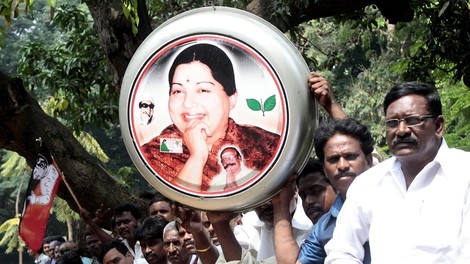Your podcast discovery platform
Curious minds select the most fascinating podcasts from around the world. Discover hand-piqd audio recommendations on your favorite topics.

piqer for: Climate and Environment Globalization and politics
Raksha Kumar is a multimedia journalist focusing on human rights, politics and social injustices. Since 2011, she has reported for The New York Times, BBC, Guardian, TIME, South China Morning Post, Foreign Policy, Scroll.in and The Hindu.
In March 2018, she was awarded the National Foundation for India Media Award for her reportage on land rights in India. In 2017, she was shortlisted for Kurt Schork Memorial Awards in International Journalism. For her work on land conflicts in India, she was awarded the Chameli Devi Award for Outstanding Media Personality in 2016.
As a reporter, her focus areas are land and forest rights of the most vulnerable communities. However, since these issues cannot be looked at in isolation, Raksha found herself increasingly reporting on armed conflict around resource extraction in places like Chhattisgarh and Kashmir.
In 2015, she wrote, shot and directed a documentary film on Rationalists in Contemporary India. It was aired by India's public broadcaster, Doordarshan. The film has been screened in 29 locations across the country until now.
The same year, Raksha was selected as a Chevening Fellow by the University of Westminster to research on Hindu Right in the UK. This helped Raksha build on her post graduate dissertation which was on Hindu Fundamentalists in India.
With a Fulbright Scholarship for Leadership Development, she went to the Columbia University in New York City to pursue a Masters in Science. As a student, she was offered the Scripps Howard Fellowship to report from Israel and the West Bank. Since 2011, Raksha has reported from 11 countries across the world.
Raksha worked as an editor at NDTV, leading English news channel in India. She was the editorial head of a two-hour prime time news show, where she lead a team of about 20 junior journalists.
A graduate of Lady Shri Ram College in New Delhi, Raksha was a dedicated student and a passionate public speaker.
The Solitude Of Female Politicians In South Asia
A leading Indian intellectual, Mukul Kesavan, says that it is an unwritten job requirement for a female politician in India to be single. Because a female politician should not (by implication) be sexually active.
Indira Gandhi, who became India's prime minister, and Nandini Satpathy, Sheila Dixit, Vasundhara Raje, Uma Bharti, Mamata Banerjee, Jayalalithaa Jayaram and Kumari Mayawati, who served terms as provincial chief ministers, were unmarried or separated or widowed at the moment of their ascension and through their time at the top.
While sexual potency is looked at as a strength in a man, in a woman it becomes her greatest weakness.
Not only that, the rule apparently applies to all of South Asia. The article has many, many examples.
Another important point that Kesavan makes is that a married South Asian woman is looked at as a puppet in the hands of her husband. She doesn't have an agency of her own, regardless of how independent she is.
While aspects of South Asia's patriarchy might be different from patriarchies in the West, the fact remains that women are not trusted with power. This powerful piece makes several significant points to illustrate this point.
